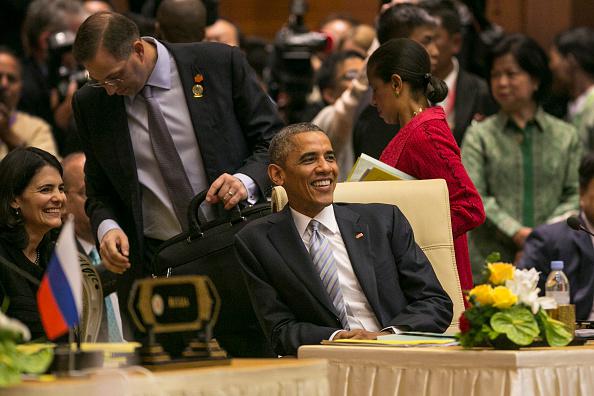The New York Times has the scoop on President Obama’s long-expected overhaul of immigration enforcement policy and, to paraphrase Vice President Joseph Biden, it sounds like it’s going to be a big deal:
Asserting his authority as president to enforce the nation’s laws with discretion, Mr. Obama intends to order changes that will significantly refocus the activities of the government’s 12,000 immigration agents. One key piece of the order, officials said, will allow many parents of children who are American citizens or legal residents to obtain legal work documents and no longer worry about being discovered, separated from their families and sent away…
Mr. Obama’s actions will also expand opportunities for immigrants who have high-tech skills, shift extra security resources to the nation’s southern border, revamp a controversial immigration enforcement program called Secure Communities, and provide clearer guidance to the agencies that enforce immigration laws about who should be a low priority for deportation, especially those with strong family ties and no serious criminal history.
(Click here for some background on Secure Communities, a deportation program that’s been criticized for punishing undocumented immigrants who are gainfully employed and law-abiding.)
As many as 5 million undocumented immigrants could be protected by the moves, though that number is still up in the air as the plan is being finalized.
Republicans are expected to denounce Obama’s actions as an inappropriate overextension of executive power that rewards unlawfulness. The president plans some political cover on those fronts:
Immigration agents are to instead focus on gang members, narcotics traffickers and potential terrorists.
And:
The White House expects a chorus of outside legal experts to back it up once Mr. Obama makes the plan official.
If Obama’s plans are in fact carried out, they will fit in with America’s long history of treating immigration in seemingly contradictory fashion—the act of crossing the border without official permission is considered illegal, but punishment for the act becomes less severe or even nonexistent the longer an immigrant is able to stay in the country as a contributing member of society. Click here to read an informative piece on the subject in the Boston Review by Columbia University history professor Mae Ngai. “As long as we have had restrictions on immigration,” Ngai writes, “we have had provisions for both deportation and legalization.” And click here to read about the United States’ last major amnesty initiative, spearheaded in 1986 by none other than Ronald Reagan.
